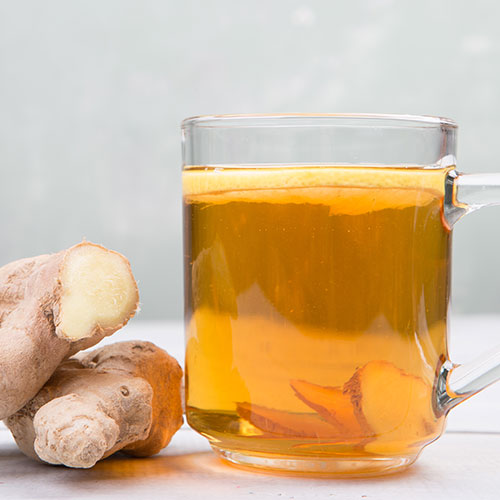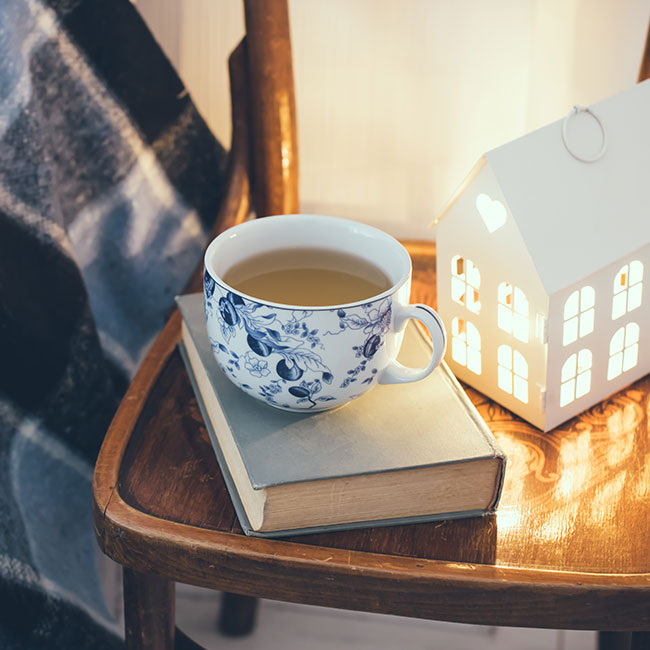
Ginger Tea
"Ginger is incredibly rich in antioxidants with over 50 different antioxidant compounds," registered dietitian and nutritionist Kristin Gillespie, MS, RD, LD, CNSC, told SheFinds. "As a result, ginger tea can reduce the prevalence of cytokines in your body, thereby reducing inflammation. Ginger tea is a perfect tea to consume prior to bed to reduce inflammation and help you have a better night."
You can make ginger tea with store-bought tea sachets, or simply add some ground ginger into another caffeine-free tea before bed.
Turmeric Tea
Gillespie added that turmeric is "excellent in terms of its anti-inflammatory properties. The active ingredient in turmeric tea helps to reduce inflammation and associated pain by interrupting the pathways that cause these symptoms. Curcumin, the acting ingredient, is better absorbed in the presence of black pepper, so consider adding a pinch of this to your tea as well."
Turmeric is much more spicy and flavorful than ginger, so if this tea is too much for you, simply add some ground turmeric into another tea to fight inflammation.
Chamomile Tea
Health and wellness expert Dr. Rashmi Byakodi told SheFinds, "Chamomile is one of the most ancient medicinal herbs, which has been used for centuries for its anti-inflammatory, antioxidant, mildly astringent, and healing properties. Various flavonoids present possess anti-inflammatory and antiphlogistic properties."
Chamomile is also a very relaxing tea, so it may even help you fall asleep if you drink this tea at bedtime.
Peppermint Tea
If you prefer a more refreshing flavor, peppermint tea may be the right way to go. This tea is also known to reduce inflammatiion throughout the body.
"Peppermint tea is a relaxing herbal tea that has anti inflammatory properties," registered dietitian Bri Bell told SheFinds. "It is naturally caffeine free and is not a diuretic, so won't make you have to pee in the middle of the night any more than plain water, unlike some other teas like dandelion root tea."


